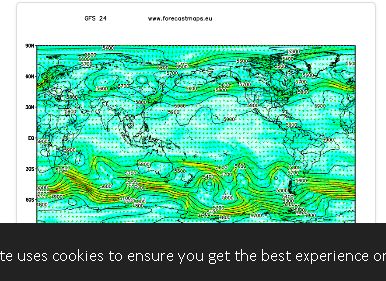How must Global Weather Programmes predict the future? Weather forecasts can be a big a part of our everyday life and, whether we have been considering a worldwide weather map, a weather map of Europe, or we just are interested in an area weather map for an additional day or two, what you are seeing ‘s all depending on data taken from huge mathematical models generally known as numerical weather prediction (NWP) models. The very first NWP models were pioneered through the English mathematician Lewis Fry Richardson, who produced, by hand, six hour weather forecasts for predicting that state of the climate over just two points in Europe. Even this standard kind of NWP was complex plus it took him 6 weeks to produce each, very sketchy and unreliable, Europe weather map. It wasn’t before the advent of laptop computer how the huge computations forced to forecast the elements could even be completed inside the timeframe with the forecast itself.

For more details about weather maps africa check our new internet page: learn here
